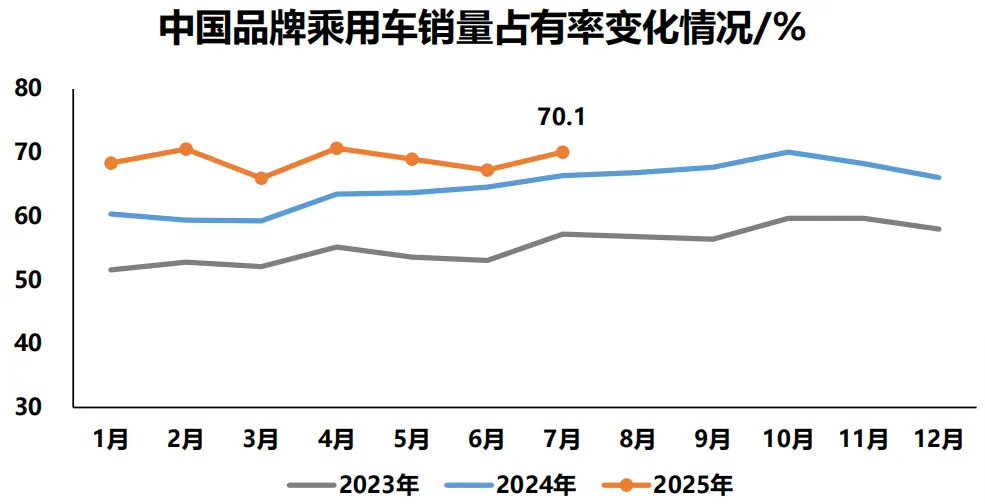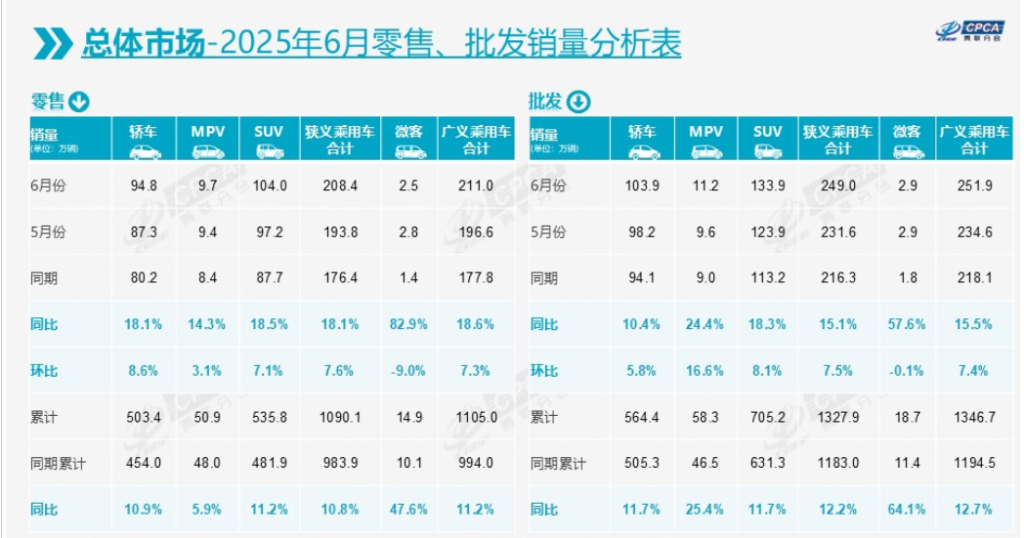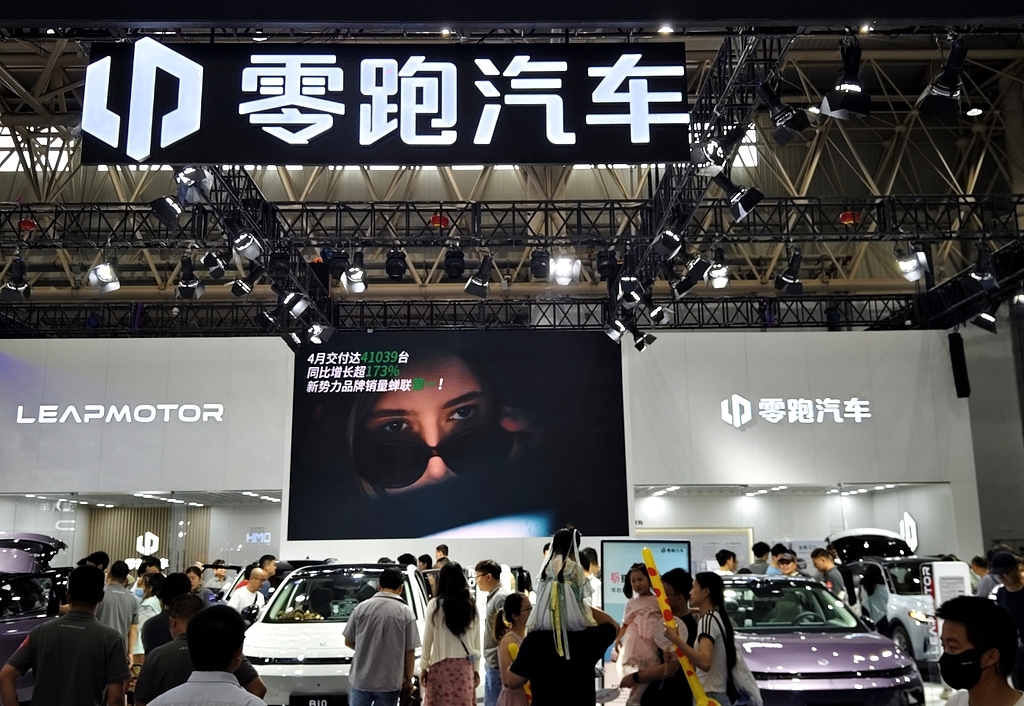
On August 11, the latest data released by the China Association of Automobile Manufacturers (hereinafter referred to as "CAAM") showed that in July, a total of 1.604 million Chinese-branded passenger cars were sold, a year-on-year increase of 21.3%, accounting for 70.1% of the total passenger car sales, and the sales share increased by 3.8 percentage points over the same period last year.

Image source: China Association of Automobile Manufacturers
From January to July this year, sales of Chinese-branded passenger cars reached 10.873 million units, a year-on-year increase of 24.4%. The sales market share was 68.6%, up 6.1 percentage points from the same period last year.
In July, new energy vehicles continued their rapid growth trend. The national production and sales of new energy vehicles reached 1.243 million and 1.262 million respectively, up 26.3% and 27.4% year-on-year respectively.
In July, new energy vehicle sales accounted for 48.7% of total new vehicle sales, with domestic sales of new energy vehicles accounting for 51.4%. This is the first time that the domestic sales share of new energy vehicles has returned to above 50% since it fell below 50% in December last year.

Image source: China Association of Automobile Manufacturers
From January to July this year, the national production and sales of new energy vehicles reached 8.232 million and 8.22 million respectively, up 39.2% and 38.5% year-on-year respectively. New energy vehicle sales accounted for 45% of total new vehicle sales, of which domestic sales accounted for 47.4%.
Data from the China Association of Automobile Manufacturers also showed that from January to July, the top five new energy vehicle sales companies, namely BYD, Geely, SAIC, Changan and Dongfeng, had a market share of up to 64%; the sales of the top 15 groups accounted for 95.1% of the total new energy vehicle sales, 1.8 percentage points higher than the same period last year.
Chen Shihua stated that new energy vehicle exports have seen rapid growth this year, becoming the primary driver of my country's auto exports. Data shows that from January to July, my country exported 3.68 million vehicles, a year-on-year increase of 12.8%. Of this total, exports of conventional fuel vehicles totaled 2.373 million, a year-on-year decrease of 7%, while new energy vehicle exports totaled 1.308 million, a year-on-year increase of 84.6%.

Image source: China Association of Automobile Manufacturers
In the first seven months of this year, among the top ten vehicle exporters, Chery exported 667,000 vehicles, a year-on-year increase of 7.3%, accounting for 18.1% of total exports. BYD, ranked second, experienced the most significant export growth this year, with exports reaching 553,000 vehicles, a 1.3-fold year-on-year increase.
In July, national automobile production and sales reached 2.591 million and 2.593 million units, respectively, representing month-over-month decreases of 7.3% and 10.7%, and year-over-year increases of 13.3% and 14.7%, respectively. From January to July, national automobile production and sales totaled 18.235 million and 18.269 million units, respectively, up 12.7% and 12% year-over-year. Passenger car production and sales in July reached 2.293 million and 2.287 million units, respectively, down 6% and 9.8% month-over-month, and up 13% and 14.7% year-over-year, respectively. From January to July, passenger car production and sales reached 15.838 million and 15.841 million units, respectively, up 13.8% and 13.4% year-over-year.

Chen Shihua, Deputy Secretary-General of the China Association of Automobile Manufacturers, explained the reasons for the month-over-month decline in both production and sales in the national auto market in July. He explained that factors such as high temperatures, equipment maintenance at companies, and holiday periods during the heatwave led to seasonal month-over-month declines and year-over-year increases in all data. July's data shows that domestic sales of traditional fuel vehicles have increased for two consecutive months, largely due to changes in traditional automakers' strategies for fuel vehicles.

In addition, Chen Shihua said, "The clarification of national policies will help stabilize consumer confidence, continue to boost auto consumption, and ensure the smooth operation of the industry in the second half of the year."


